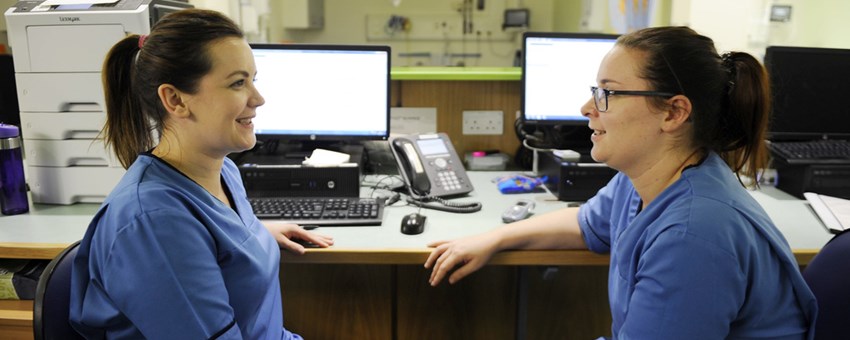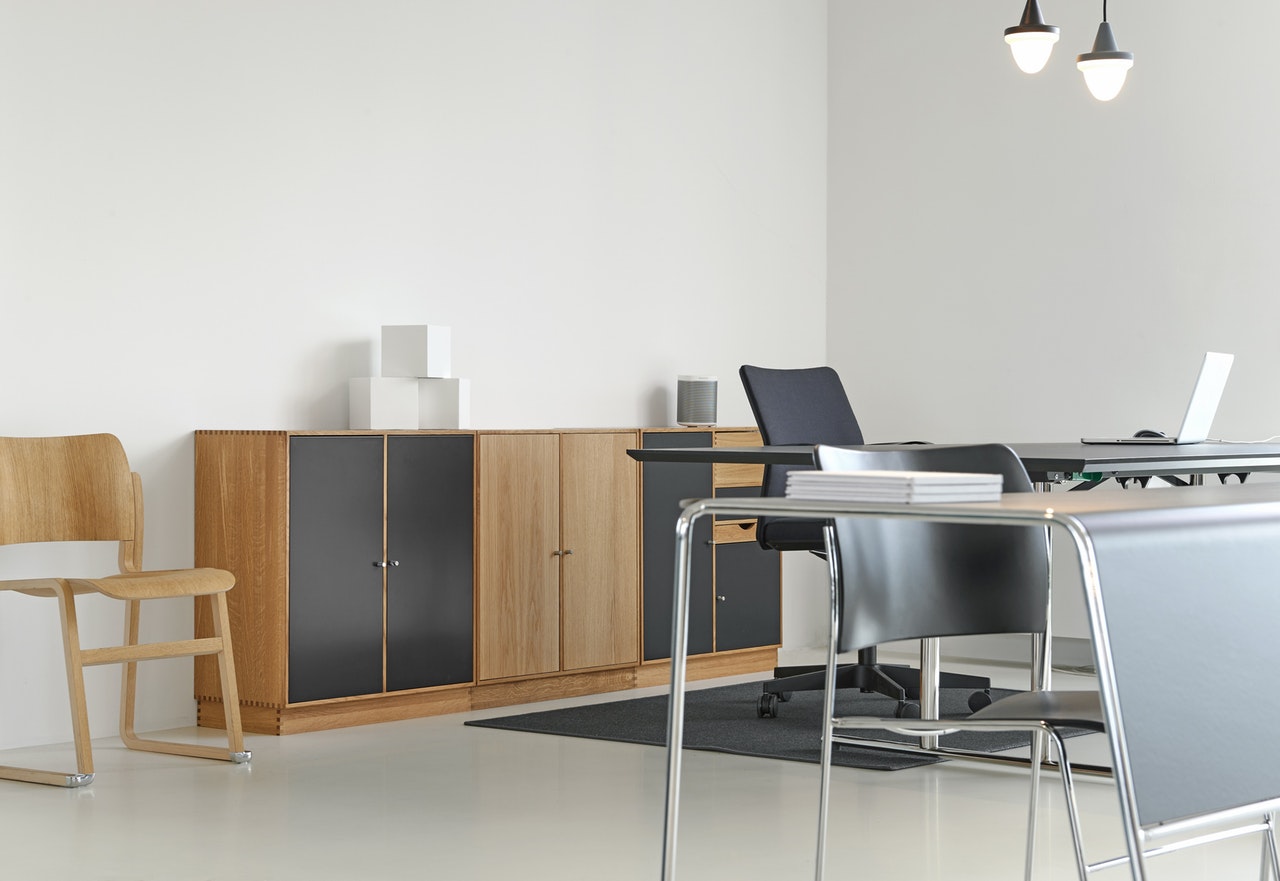The “reduce, reuse, recycle” mantra has been ingrained into us since school but how many actually follow it in our our everyday thinking and actions. Some use their own water bottles instead of buying one-use plastic ones. Most of us bring our own canvas bags to the supermarket. Up cycling is trendy and mainstream. The internet is full of videos on how to repurpose old furniture and other household items.
But what if you’re a business? Our customers reuse assets and equipment. But this is not mainstream. What about those who are going beyond reuse?
Repair and refurbishment
This is our first in a series or articles about how some organisations are going way beyond recycling and reuse and adopting repair and refurbishment activities for their assets.
It’s always been easiest to throw away used or damaged office furniture or equipment and buy new. According to WRAP, the Waste and Resources Action Plan, only 14 percent of office desks were reused in 2011--that amounts to 35,000 tonnes of desks going to landfills each year. Dumping usable goods is a tremendous waste of resources that could have otherwise been recovered.
Organisations who are adopting circular practices like reuse and repair of their surplus assets are saving money and future proofing their organisation. Scotland is a hot bed of activity for the Circular Economy in organisations. In Scotland Warp It can count 100% of the NHS Healthcare sector, 80% of the University sector and over 50% of the Scottish Municipal Councils as customer. Glasgow and Clyde NHS have saved over £15K a month over the last 2 years reusing their surplus assets across the organisation using Warp It. And they have not rested on their laurels.
Refurbishing bins
Elaine Gray came up with a solution that took reuse a step farther. Elaine, who is Purchasing Lead for NHS Greater Glasgow & Clyde, was working on a decommissioning project when she discovered more than 300 waste bins that were going to be scrapped because they were deemed useless. She couldn’t understand why they needed to be thrown away. “When I looked at them, they were perfectly fine mechanically. There was nothing wrong with them. They were scratched, maybe a wee bit...some marks on them and things like that.” Why not simply fix the bins? she thought. She’d had success with reusing office furniture with the help of Warp It, but the bins couldn’t be reused in their current condition. She would have to make them look like new.
Her first obstacle was finding someone to fix the bins. She turned to supported services other wise called Social Enterprises. “At that time, I was in conversation with our supported businesses in Scotland who are part of a national framework agreement.” Supported Companies, such as Haven, employ people who are mentally or physically disabled, those people who would otherwise have difficulty finding and keeping a job. When she approached Haven about the bin refurbishment, the director agreed it was something they could do. “The company’s director, came out, looked at them and said, ‘Right, okay Elaine. I think that’s perfectly doable.’ Came back with a price of £18 which, to me, was absolutely wonderful.”
Infection control
Next, she had to deal with Infection Control. “We faced the barrier of infection control. That was the biggest barrier for me because infection control deemed them to be of no use. There was bashes, they were marked, they were scratched.” Bins with scratches and dents where any metal is showing, Elaine learned, are unacceptable due to the risk of spreading infection which is why they were taken out of circulation in the first place. She had Haven refurbish a few bins, wash and repaint them. “Then paint that was used had to be fire retardant and it had to withstand the levels of cleaning that would be done on a daily basis.”

Huge savings for the NHS
With the cost of the refurbished bins at a mere £18 per bin instead of £80 for each new bins, the savings for the initial 300 bins was £18,600, and that’s not including any waste disposal fees that would’ve been accrued. With such a huge savings, the idea caught on quickly. “That process is now being developed across Scotland,” Elaine says.
Using supported companies to refurbish products created a win-win situation where everyone was happy, with one exception: the bin suppliers losing orders of new bins. “We’ve just told them that our first thought now is reuse or refurbishment. We are not going to suppliers and paying full price when we can recycle and upcycle for a fraction of the cost.”
Advice for others
For Elaine, this is just the beginning. She now looks at the potential in everything and advises others to do the same. “Look at a product and think, do I need to throw that away? No, what can I do to make it better? If all it requires is just it’s got a hole in the seat, a bit of fabric, recover it. You don’t need a new chair.” This philosophy has kept her busy. Glasgow and Clyde NHS no longer buys new chairs at £52; they have the seats covered by another supported business for £28 a piece for a savings of £24 per chair. Glasgow and Clyde NHS have moved onto beds, using parts from broken beds to fix parts in others. “Rather than scrapping the beds, we’re actually getting a company in. They come in and they look at the beds. They say, ‘Right, okay. Elaine, this bed requires this or that to bring it back to the required standard” so we might have an old, really old bed. We’re taking parts off of that bed to replace, to make it functional again. I’ve just moved 56 beds into our continuing care for the elderly hospital just this week. These are all things that we’re doing as well. It’s just constant. We’re always constantly looking at, well, I’m constantly looking at things. How to develop, how to save money and upcycle, it’s just constant.”
With budgetary issues weighing on her, Elaine feels it’s her responsibility to save money wherever she can. “We have to think of other ways to make it better for the patients rather than keeping spending money on furniture. If we can reuse it, let’s reuse it and put money into medicine and nursing.”
The best advice Elaine has for doing this for any company is start by changing how they look at things. “We have to think differently in procurement and across the board. I’m the purchasing manager for our health board. At the end of the day, it’s my money that I’m spending. Now if I was going out to buy something, if something was in my house, I’m not going to get rid of it because there’s something that’s slightly wrong with it. I’m going to try and fix it. That’s what we have to do in the health service. We have to think that things that we have, within our health board, just because there’s slight damage on it, how do we go about fixing that rather than replacing it? We don’t have the money to replace it. At the end of the day, it’s my money and that’s what we try to say to people. It’s your money, you wouldn’t do that with your own money. You have to think of it like that. It’s working because that then filters through to other people.”
What is next?
What’s next for Elaine? She’s looking at making the whole process even more efficient by using organisations like Warp It to help manage it all. “I’m looking for something that’s going to harness everything. At the minute, we do a lot of Warp It but we are not really capturing the refurbishment opportunity. I’m doing it myself all manual requests, if you like, paper requests. You know the old fashioned requests?” By using Warp It to eliminate those old fashioned requests, Elaine hopes to streamline the whole process, saving time and even more money that could be used to directly benefit patients.
Thank you for being so generous with your time Elaine!- Daniel!
Do you repair or refurbish any of your assets, like furniture and equipment? If so, we would love to find out more about your process and produce an article like this. We will be producing a guide shortly. Let me know when is good for you to chat here.









